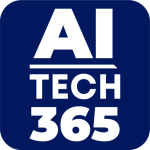New clinical data repository built on SAS® Viya® offers an open, cloud-native, and scalable analytics platform to boost productivity and accelerate innovation
Data offers limitless opportunities to life sciences and health care organizations. It empowers clinical researchers to analyze and uncover trends that can lead to groundbreaking treatments, and it is the foundation to unlocking health care insights more quickly.
SAS Clinical Acceleration Repository, a secure, cloud-native data repository with robust audit and administration capabilities, is now available to help drive innovation for life sciences and health organizations. The analytics platform manages clinical research data, integrates with various data sources, improves clinical trial development and accelerates the path to regulatory submission.
Streamlining and securing clinical data for innovation
Establishing a secure, advanced data repository to manage clinical data and support clinical trial development from various sources, transforming and preparing it for statistical analytics, and packaging it for regulatory submission is a common challenge for many global companies. Additionally, data management and governance challenges can delay clinical research. SAS Clinical Acceleration Repository provides a modular, open, cloud-native content repository for managing, reporting, sharing and reviewing data.
The unique benefits of SAS Clinical Acceleration Repository include:
- Access to curated research information and health data through a single system of record via an easy-to-use, modern user interface with intuitive dashboards.
- A production-ready data repository that enables easier and faster data validation. The solution supports groups and permissions, roles and privileges, electronic signatures, version control, search, and an audit trail, while also enabling continuous monitoring and data preservation to support security, and regulatory and data standards compliance.
- A multi-lingual, open environment to support use of third-party programming languages and tools and data integration from many locations and sources, such as electronic data capture systems, in-house clinical data management systems, labs and contract research organizations.
- Access to SAS Viya enabled solutions and technology – proven to be 30 times faster than commercial and open-source alternatives – to improve efficiency and speed the path to submission.
“SAS Clinical Acceleration Repository enables researchers and data scientists to better manage their clinical data and empowers organizations to make informed business decisions,” said Gail Stephens, Vice President of Health Care and Life Sciences at SAS. “Accelerating and improving the clinical development process helps bring therapies to market sooner and strengthens the bottom line for life sciences and health organizations.”
Also Read: Roche receives FDA clearance on its digital pathology solution for diagnostic use
Generating synthetic data to bridge gaps in real-world data
Synthetic data is increasingly being used in the health care and life sciences industries to train and test AI systems in place of or in addition to real-world data. To further support the data and AI needs for health and clinical research, SAS has introduced SAS Data Maker (currently in private preview).
The powerful synthetic data generation capabilities of SAS Data Maker address data privacy and scarcity challenges by generating synthetic tabular data that statistically represents original training data without compromising sensitive patient health information. This enables health care and life sciences companies to innovate faster by combining trusted data augmentation and generation algorithms in one seamless tool.
“SAS Data Maker uses SAS’ cutting-edge, reliable AI models to create statistically accurate data points that truly augment existing data and can capture countless different scenarios, helping organizations better forecast outcomes so they can anticipate their businesses’ changing needs,” said Shadi Shahin, Vice President of Product Strategy at SAS. “This is particularly valuable in instances where specific real-world data is hard to come by or when there’s a need to detect rare case scenarios in highly regulated areas like health care and life sciences.”
AstraZeneca, a global biopharmaceutical company, intends to use SAS Data Maker on the Snowflake Marketplace to empower its data scientists through the use of synthetic data to further improve decision making.
“Synthetic data can enhance our ability to make informed decisions from critical data, and thus has the real potential to help accelerate drug discovery and development, ultimately benefiting patients around the world,” noted Brian Dummann, Chief Data Officer at AstraZeneca. “We look forward to leveraging SAS Data Maker and streamlining how data scientists can access synthetic data for their initiatives.”
Source: PRNewswire

